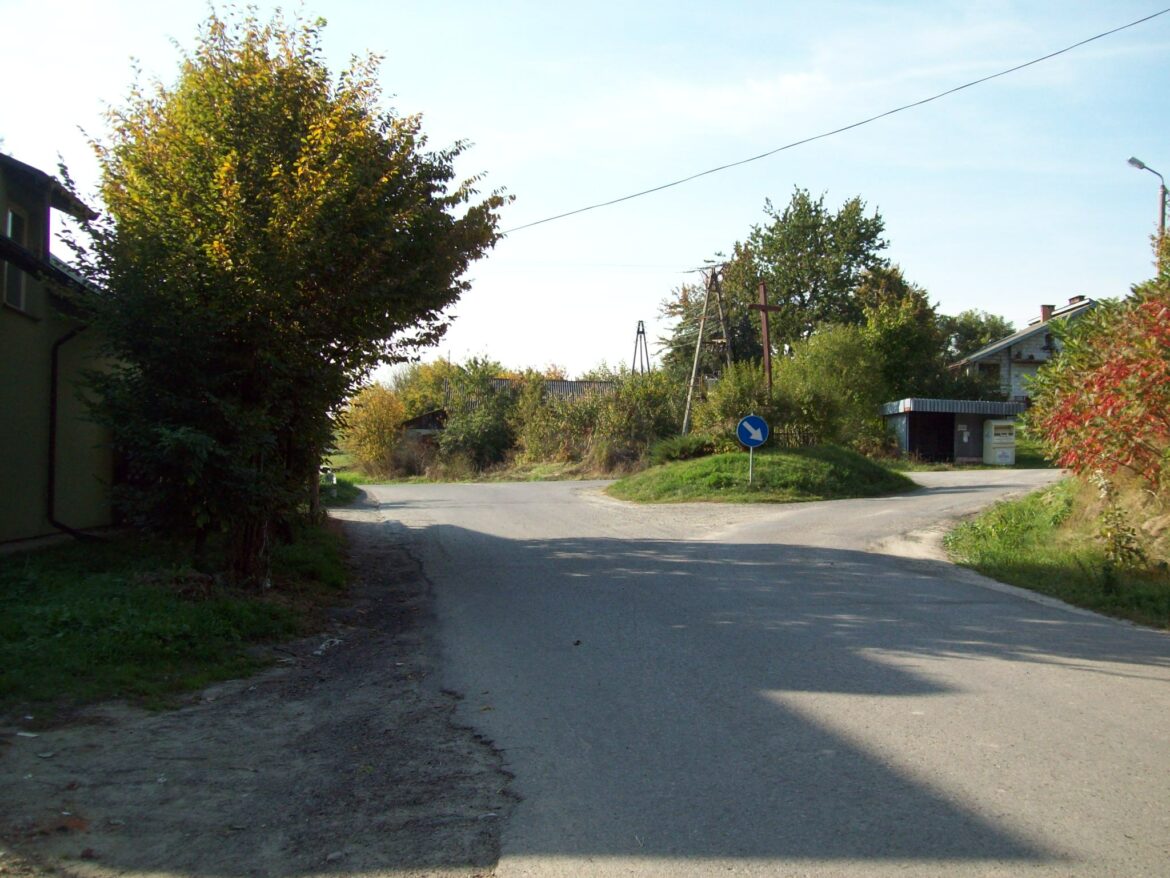The Pawlaks lived in Olszanka (Krzczonów municipality) in the Lublin district. They were farmers. Despite fear and anxiety for their lives, they hid a Jewish family of 4 people.
Bronisława and Stefan Pawlak earned their living as farmers before the war. Located in the village of Olszanka, their farm was adjacent to the local forest, which the local people called “Chmielowski”. Before the war, they were good friends with the Jewish Brona family from Bychawa, who were involved in trade.
In the winter of 1941 to 1942, Elka Brona came to the Polish family’s house, asking Stefan to hide her, her husband Mordek, and their two sons (Icek and Mojżesz). The Pawlak family took in the Jews. The timing of this important decision for the Poles, as well as their motivations, can be captured in Bronisława’s post-war testimony: “I was shocked and after deliberation with my husband Stefan – despite the great (enormous) danger to us and our daughter Jadwiga, (the danger was death sentence from the Germans) we decided to save the life of this Jewish family of the Bronas. We were guided by the fact that we knew them and, moreover, as Christians, we decided to save the endangered lives of our neighbours.”
The hiding began by digging an earthen pit in the barn in great secrecy. Inside it was covered with planks and straw. The top of the bunker was also lined with wood material, camouflaging it by placing a straw chopper on top of it to cut straw for the livestock. Entrance to the hiding place was only possible by pulling the planks apart. The bunker was fitted out with bunks for sleeping. Thanks to the quilts and pillows donated by the landlady, the conditions inside were bearable.
After the war, Bronisława also recalled other aspects of helping the four-person Jewish family. Because they followed the rules of kosher cooking, meals for them sometimes had to be prepared separately. Bronisława called this requirement “a great inconvenience”. The food and utensils for the Jews were carried every day in a bucket by the Pawlaks’ daughter Jadwiga. The idea was to create the impression that the family had nothing to hide, repeating the routine daily.
From time to time, the Bronas had to wash themselves. This ordinary activity “on the surface”, under conspiratorial conditions, grew into a major undertaking. Washing was done at night in a specially brought tub along with other utensils.
The Bronas and Pawlaks survived the German occupation. The Jewish family left for the USA. After the war, the two families maintained contact by letters. They shared a great deal of cordiality and mutual affection.





